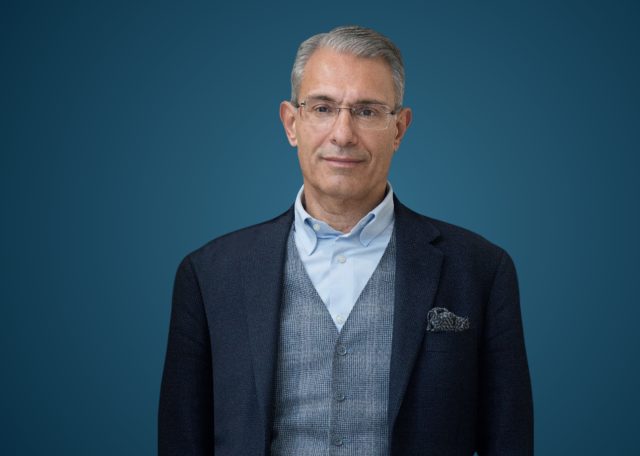As an angel investor with a CEO background, what advice do you have for CEOs who are considering becoming an angel investor?
Angel and venture capital investing is not only risky, but also involves a heavy commitment on one’s time. I started after I left my CEO position with Oger Telecom in 2011, as I wasn’t able to do so while in my CEO job at the time. I would recommend interested CEO’s to invest through established vehicles, or in groups, to share time commitments and diversify their interests as much as possible, and would highlight the advantageous angel investing income tax incentives offered in Turkey.
Angel investors provide know-how, network, mentorship and finance as part of their investment in start-ups. CEOs have all of these as well. But is that enough?
Firstly I would like to say I am not sure that CEOs are more qualifi ed to be angel investors than any other person, having all these attributes. In relation to reducing probability of failure, one must accept upfront that the angel investor has no control over these new ventures, as CEOs cannot behave as bosses when they invest – they are just like any other investor! Therefore they will need to accept up front, that they won’t be able to overrule the entrepreneur and their management team.
Is it a good idea for CEOs to spend some time as a silent investor in an angel group before making angel investments on their own?
This would be a wise approach for sure, especially for CEOs who are keen on taking such investment risks while they are otherwise busy in their demanding jobs.
OECD statistics show that only 1.2% of start-ups and entrepreneurs ever reach angel investor fi nance. Only one in every ten start-ups who reach angel investor fi nance is able to succeed with at least a 20X exit. Given these statistics, do you think it is better for fi rst-time CEO angels to invest in scale-ups rather than start-ups?
It would be a good idea to mix between pure start-ups, ‘early-stage’, and even ‘private-equity’ in time. ‘Scaleups’ would appear to be the most appropriate target for a CEO, as he/ she would then be able to provide more effective input with limited time, as compared with pure start-ups, which are far more demanding.
“Throughout my career
I have tried to encourage
people working around
me, with abilities such as
these, and drive them to
take more risk.”
CEOs with an entrepreneurial spirit are sometimes referred to as ‘CEOpreneurs’?
Do you consider yourself a CEOpreneur? Entrepreneurship is a way of life, whether one is capable of investing or not. It involves a combination of ‘insatiable creativity’ with a fearless willingness to take ‘risk’, but with a balancing wisdom to ensure a ‘realizable reward’ across the full range of risk activities – i.e. ‘fi scal discipline’. These types of CEOs are the kind you fi nd on the frontline of their company’s battles! Throughout my career I have tried to encourage people working around me, with abilities such as these, and drive them to take more risk. I believe that this approach will become increasingly important in the future, as companies need to continuously transform more so than ever before, and that will mean changing the paradigm, and knowing that in mature companies, one probably cannot do in the next few years what one has been doing in the past fi ve years.
How can we spread the word about angel investment to CEOs throughout the world? Is the Global CEO Alliance Club of the World Business Angels Investment Forum (WBAF) a potential channel, do you think?
It could be, especially if they are introduced to like-minded businesspersons, providing an alternative to direct personal investment, and a mechanism is available to limit their personal time commitment, with reasonable periodic reviews.
Everyone is talking about easing access to fi nance for entrepreneurs. What about angel investors? Do they not have any diffi culty in easing access to fi nance when they get to the second or third round of investment?
Raising funding is increasingly diffi cult, especially for early-stage companies. Luckily, Turkey offers various incentives to start-ups and young companies, especially funding grants for research-based work, as well as some commercial funding support. That is the reality, so such companies will always need Investor Equity. Additionally, all these companies are very likely to need more than they had budgeted for. Failure probability due to underfunding is probably higher than any other failure reason.
What are your thoughts about the new roadmap proposed by the World Business Angels Investment Forum: from start-up to angel investor to corporate venture to exit?
This model is very well established and evidence-based. It is important to diversify as much as possible, and not only limit one’s activities to one’s own personal knowledge areas, as success usually comes from outside our immediate business activities and experiences.
What do you think about converting corporate venture capital (CVC) to smart fi nance in cooperation with angel investors?
This could be a helpful approach, especially where said corporates have the appropriate resources and business capabilities to assist start-ups with both cash and ‘equity in kind’, which could prove more valuable than cash, in some cases. On my return to Turk Telekom at the end of last year, I was very impressed with their Accelerator Program called ‘Pilot’, launched in 2013, i.e. after my departure from the company in 2011. These types of initiatives would be ideal for angel investors to join in the second round. Also, I plan to expand this program, to providing support to early stage companies as well, but mostly ‘in-kind’ support. In my first talk I told the start-ups to learn as much as possible from the company management, but in return, I told our management to learn from the ‘courage’ of these entrepreneurs.
How many angel investments have you made so far? Have you made successful exits?
In the period 2011-2015, we managed 20 investments, with two successful exits.
If there were more corporate venture capital in your environment, what would the numbers be? Would you make more investments? Would you make it easier to raise funds in the second or third rounds? Would you increase the multipliers in exits?
Not by much, because I pushed for the companies that I believed in, half of which were pure start-ups with people I knew. I then assisted in fund-raising for all subsequent capital increase rounds. So I am not sure it would have been easier had there been more corporate venture capital around, as most ‘corporate’ related entities are usually very slow in decision-making, managed by teams that don’t have the requisite incentives – I normally prefer to talk to the actual funding source directly, rather than to their investment management teams!
US President Obama stated in his interview with Bloomberg News last December that increasing investment in IT and mobile technologies is threatening job placement statistics. Do you agree with Obama’s statement, that is, more IT and mobile investment reduces the need for human power?
The reality is that ‘Artificial Intelligence’ and ‘Machine Learning’ will result in a major transformation of the workplace of the near future. I don’t know whether job losses will be balanced by the new jobs created. What I do know is that future governments will need to exert special effort to attract investments for the new companies being established in their countries. Hence, they will need to provide incentives for ensuring risks being taken, and to provide the social net to contain failures. It appears that this will become even more challenging over time.
“The most difficult
step for the start-up
is raising the money.
Which is why my advice
to founders is to only
give time to their
ventures, and not invest
their money. Otherwise,
keep your job and invest
your money. But don’t
do both.”
What about your vision of the human power need in the 2050s? Might it be fewer full-time jobs but more task implementation?
In general I do see that full-time employment will reduce, with future generations undertaking many different jobs in the course of their working lives, and even multiple parttime jobs at any one time; although more challenging than our time, I believe their futures are far more interesting, given the technological advances they will be able to enjoy across most sectors of the economy. In that regard, we need to support younger generations – the future will be far harder to predict than hitherto, and we need to show understanding.
US President Obama declared the 21st century as the century of entrepreneurs, and he holds a global entrepreneurs summit every year in a different country. The next one will be in India in June, as Obama announced at last year’s summit in San Francisco. But this still needs an approval from the Senate. Do you think the Trump administration will approve it? And will the Global Entrepreneurship Summit initiated by Obama host Trump in India?
I believe that all world leaders understand the importance of building new companies, and I don’t see any reason why President Trump wouldn’t. Although he now emphasizes job protection for wellestablished ‘old’ companies, I am sure he fully appreciates the importance of entrepreneurship programs, and his country is leading in several sectors, and benefits from the largest source of domestic funding and a large market. As to whether he would want to associate his name with such events I am not sure. What I am sure about is that he won’t do anything to suppress venture capital investments at all.
Some say that start-ups may be luckier now because the US is about to have a president with a bigbusiness background?
I agree with that opinion – having a business background can be helpful. Least of all, business leaders learn from failures and missed business opportunities, which is the one experience every person in business learns very early on! Experience in identifying talent and management skills, as well as strength in balancing risk/reward, with an inherent knowledge of what new ventures really need to succeed.

What is the Paul Doany way of investing in start-ups? How do you decide?
The most important rule of investment is ‘diversification’, as one never knows which companies will succeed, and which will fail. I should explain that failure here means ‘failure to deliver a return’, and not necessarily that the company is totally shut down. In the end one must measure ‘realizable returns’, from hard cash extraction, future dividends from operational profits, or some ‘liquid’ asset (like a listed company). If we assess that a company can at least build up to cover its operating cost, this would be the ideal minimum level to reach, regardless of exit realization, as running on shareholder equity is dangerous. After making an investment decision, I focus on strategy development for each company, risk analysis, operational management assistance and periodic performance reviews. I have a broad range of experience covering most areas of management, including pure business and financial aspects, as well as technical, marketing/sales, legal/contracts, and most importantly, human resources development. This enables me to offer help to companies, as opposed to just ‘checking’ on them, which makes my relationship with management much better than a ‘normal’ fund manager. This is also my management style, which is more activity-based, i.e. around projects, especially multidisciplinary ones, as opposed to just functional/hierarchical reporting.
In your estimation, which actor is more important if you intend to win a race: the horse or the jockey?
As we say in colloquial Arabic, ‘one hand can’t clap’ – so it doesn’t matter which one is more important! In the end, what matters is doing all that can be done within the available means in terms of cash and resources; minimizing failure risk as much as possible, and being prepared to exit that particular race, in readiness for the next one! As a matter of fact, I would add that the real question should be: “Will the next race be run with the same horse and the same jockey?”
How do you see the future of the FinTech industry? Will it grow significantly in the coming years, or not?
I see major changes in the FinTech industries, as with most industries. It will definitely grow, and what is sure is that conventional business approaches will be severely challenged.
What practical advice would you giveto start-ups, scale-ups, entrepreneurs and SMEs who want to raise funds from angel investors? Can you put a to-do list or not-to-do list on the table?
The first test is a realistic business plan, based on a convincing ‘business model’. The second test is ability of the management to deliver on the business plan, demonstrating a full understanding of the risks, with realistic ‘fallback positions’ on key action areas. The third is management: lead persons in such early stage companies usually have one strength area, but many weaknesses – it is therefore key to see if they recognize their own limitations, and how they intend to supplement their teams, or use outsource services to fill the gaps. (Frankly, overconfident people claiming to ‘know everything’ are the most dangerous, and the one big sign of impending failure. Hence, ‘management experience’ is key, and most importantly, being willing to listen to those who do know better). The fourth and last test is ‘valuation’. I notice that many entrepreneurs get hung up on some valuation expectation, and over-estimate the success rates of their projects.
In the footsteps of Paul: deal flow – pitching – negotiation – company valuation – term sheets – other rounds of investment – exit. Which step is the most difficult step for an angel investor?Which is the most difficult step for a start-up?
The most difficult step for the Start-up is raising the money. Which is why my advice to founders is to only give time to their ventures, and not invest their money. Otherwise, keep your job and invest your money. But don’t do both. This is also the most diffi cult decision for the Angel Investor – namely, to make the decision to invest! Don’t think about the returns – just think where the next round will come from! And spread the budget across the largest possible number you can.
Which is the most critical step for an angel investor? Which one is the most critical step for a start-up?
Having raised the money, the next critical step will be the subsequent funding round, because without it, you will fail to continue, even if you have a successful project. This would be very critical and should be planned well ahead of the needed time and it applies to both the Angel Investor and the Start-up.
Which one is the easiest step for an angel investor? Why? Which one is the easiest step for a start-up? Why?
There isn’t a single easy step for either the Angel Investor, nor for the Start-up. If either think that even one step will be easy, don’t venture at all!

“Especially after Brexit,
we see a new direction,
and with that will come
new challenges and new
opportunities, especially
in emerging markets.”
We see a new paradigm change in the focus of stock exchanges around the world. Stock exchanges today focus on post-early-stage investment markets, mainly the segment described as scale-ups. The London Stock Exchange has an Elite programme to develop the institutional capacity of scale-ups and SMEs, Borsa Istanbul has launched a Private Market to connect angel investors with start-ups, and Nasdaq has opened an Entrepreneurship Center. Stock exchanges started engaging with early-stage investment markets only after the 2008 global economic crisis. What do you think accounts for their lack of interest up until now?
Early Stage Companies are by definition outside the scope of ‘normal’ public listings, due to the inherent quarterly reporting requirement; being early stage companies, and their value is in their ‘forward looking’ analysis, which is impossible to report let alone audit. Conventional listings run on annual guidance, and at least a three year operational track record with audited accounts. Clearly, the future is new companies, and the sooner they are part of a liquid listing, the better, especially for those that don’t plan a full Trade Sale Exit. It is therefore natural to have taken time, given financial regulatory requirements in these challenging times, where the investors should be protected.
If Obama had been president in 1950s, he surely would not have called for a summit on Global Entrepreneurship. What would his 1950s summit have been called?
Frankly I am more interested in seeing what President Trump will be doing than looking back to the 1950s – I can’t even look back ten years, seeing the speed with which the world is progressing. Especially after Brexit, we see a new direction, and with that will come new challenges and new opportunities, especially in emerging markets. I am confi dent about Turkey’s standing in this new era, and that is what I focus on.
Why do today’s policymakers prefer to support innovation rather than invention? And what is the angel investor’s place in the pipeline that leads from invention to innovation?
I believe that Angel investments and Venture Capital funding are one of the most essential contributions to economic development, especially in times of technological change. Old companies cannot transform fast enough, as hard as they try – and you have seen how quickly companies like Nokia and Blackberry lost market share. That is why it is absolutely essential to build new companies, knowing that many of them will fail. I said jokingly once, that I would love to invest with people who have had at least one failed start-up, because they would have learned a lot from that bitter experience. It is like driving a car – only after your first accident, do you really learn to drive safely! I believe that both innovations and inventions are important to policy makers – but of course, different countries need to focus on the important sectors for their own requirements. Investing in promising areas to one’s own situation is key.“ Especially after Brexit, we see a new direction, and with that will come new challenges and new opportunities.














